Fourth of July Weekend 2015
Tuesday, June 30th, 2015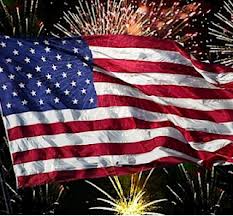 Independence Day originally started as a celebration for the United States liberation from Great Britain. Over the years, culture has shifted, and this has become a day when people of all ages flock towards the beaches for relaxation and time with family and friends. Popular hangout spots, such as Masonboro Island, Mason’s Inlet, and the North End at Carolina Beach, have drawn crowds to Wilmington. Due to an increase in safety concerns in the area during popular holidays, such as Memorial Day and July the fourth, law enforcement has increased patrols and monitoring of the waterways, beaches, and surrounding areas.
Independence Day originally started as a celebration for the United States liberation from Great Britain. Over the years, culture has shifted, and this has become a day when people of all ages flock towards the beaches for relaxation and time with family and friends. Popular hangout spots, such as Masonboro Island, Mason’s Inlet, and the North End at Carolina Beach, have drawn crowds to Wilmington. Due to an increase in safety concerns in the area during popular holidays, such as Memorial Day and July the fourth, law enforcement has increased patrols and monitoring of the waterways, beaches, and surrounding areas.
As of yesterday, emergency officials have already begun preparation for the upcoming weekend. Local news stations report that both the North Carolina Department of Highway Patrol and area law enforcement alike will have increased patrols in an effort to “keep everyone safe.” Wrightsville Beach Police Department reports the main issues they have seen in the past on this holiday are underage drinking and illegal water taxis. Wrightsville Beach Police will work closely with the United States Coast Guard in an effort address these concerns. Those caught without proper permits and or fail to meet other regulations could face hefty fines.
It is equally important to understand the long-term consequences of underage drinking. Consumption of alcohol has many negative health consequences, but if one is caught drinking and driving, and or drinking underage, the monetary fines and long term implications are severe. The State of North Carolina has a zero-tolerance policy for underage drinking and driving; offenders could face fines up to $500, be sentenced to serve community service, attend DWI Treatment court, and complete two alcohol education courses. Ramifications of being charged with this crime include having to tell future employers of the charges, as well as universities to which you may be applying.
For those over the age of 21, consequences of drinking and driving are still cause of concern. A DWI charge can result in imprisonment for up to three years, fines up to ten thousand dollars, and license suspension. The process of obtaining your driver’s license after suspension due to DWI can prolong the emotional and financial effects of the charges; the defendants face the possibility of having an ignition interlock installed and face an increase in insurance premiums.
Attorney David Collins has over 20 years of experience in the legal field, focusing on criminal defense matters. Mr. Collins has helped many clients facing underage drinking, fake ID, DWI, drunk and disorderly, and possession of open container charges. If you or someone you know is facing criminal or traffic charges, please give our office a call at (910) 793-9000.
By: Brittany Bryant, Legal Assistant

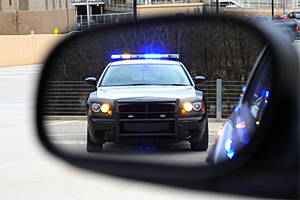 A traffic ticket can cause a lot of headache. It starts with embarrassment when the blue lights come up in your rear view mirror and when you have to sit on the side of the road while the officer investigates and issues your ticket and it continues far beyond. If you receive a traffic ticket, you should consult with an attorney on how to best handle your ticket.
A traffic ticket can cause a lot of headache. It starts with embarrassment when the blue lights come up in your rear view mirror and when you have to sit on the side of the road while the officer investigates and issues your ticket and it continues far beyond. If you receive a traffic ticket, you should consult with an attorney on how to best handle your ticket.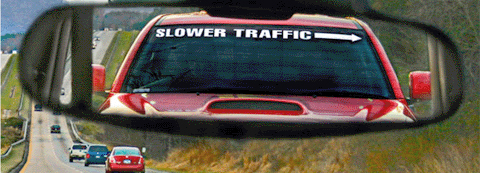 Driving slowly in the left hand lane is not just a pet peeve, but causes a hazard by negatively impacting the flow of traffic.
Driving slowly in the left hand lane is not just a pet peeve, but causes a hazard by negatively impacting the flow of traffic. 
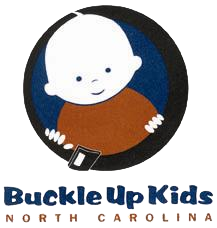 Motor vehicle crashes are the leading cause of death among those age 5-34 in the U.S. More than 2.3 million drivers and passengers were treated in emergency departments as the result of being injured in motor vehicle crashes in 2009. Seat belt use and proper child restraint are the most effective ways to save lives and reduce injuries in crashes, yet millions of adults do not wear their seat belts and fail to properly secure their children on every car ride. Many of these deaths and injuries can be prevented. Placing children in age- and size-appropriate car seats and booster seats reduces serious and fatal injuries by more than half.
Motor vehicle crashes are the leading cause of death among those age 5-34 in the U.S. More than 2.3 million drivers and passengers were treated in emergency departments as the result of being injured in motor vehicle crashes in 2009. Seat belt use and proper child restraint are the most effective ways to save lives and reduce injuries in crashes, yet millions of adults do not wear their seat belts and fail to properly secure their children on every car ride. Many of these deaths and injuries can be prevented. Placing children in age- and size-appropriate car seats and booster seats reduces serious and fatal injuries by more than half.
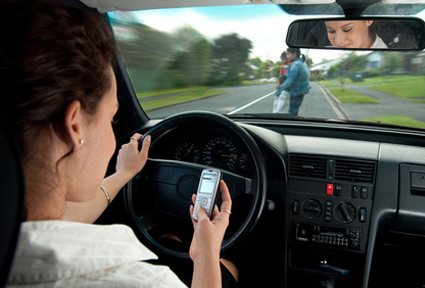 Over the past twenty years, cell phones have become an essential part of day to day life for many Americans. Cell phones continue to provide us with the convenience to communicate while on the go, comfort in knowing we have a way to call for help in case of an emergency, and access to music, games and entertainment. Cell phones can make life easier, but when used irresponsibly, can have disastrous consequences.
Over the past twenty years, cell phones have become an essential part of day to day life for many Americans. Cell phones continue to provide us with the convenience to communicate while on the go, comfort in knowing we have a way to call for help in case of an emergency, and access to music, games and entertainment. Cell phones can make life easier, but when used irresponsibly, can have disastrous consequences.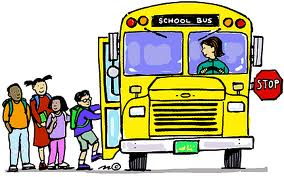
 In North Carolina, laws concerning the sale, possession, and consumption of alcoholic beverages are contained in N.C.G.S. Chapter 18B entitled “Regulation of Alcoholic Beverages.” (§§ 18B-100 – 18B-1308) and (§§ 18B-300 – 18B-399). Convictions for most violations of these provisions are subject to punishment for either a class one misdemeanor (punishable by a maximum of 120 days in jail) or a class two misdemeanor (punishable by a maximum of 60 days in jail). Further, a conviction for a violation of 18B-302(c), (e), or (f) will result in the person’s NC drivers license being revoked for one year. See N.C.G.S. § 20-17.3 entitled “Revocation for Underage Purchasers of Alcohol.”
In North Carolina, laws concerning the sale, possession, and consumption of alcoholic beverages are contained in N.C.G.S. Chapter 18B entitled “Regulation of Alcoholic Beverages.” (§§ 18B-100 – 18B-1308) and (§§ 18B-300 – 18B-399). Convictions for most violations of these provisions are subject to punishment for either a class one misdemeanor (punishable by a maximum of 120 days in jail) or a class two misdemeanor (punishable by a maximum of 60 days in jail). Further, a conviction for a violation of 18B-302(c), (e), or (f) will result in the person’s NC drivers license being revoked for one year. See N.C.G.S. § 20-17.3 entitled “Revocation for Underage Purchasers of Alcohol.”